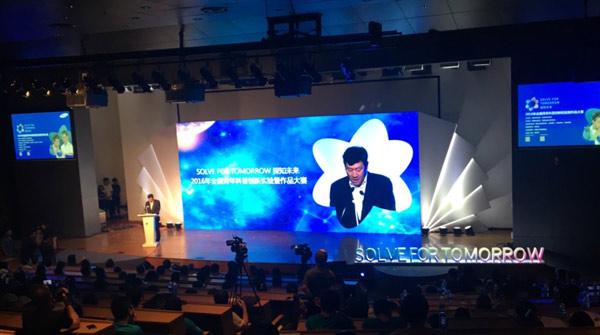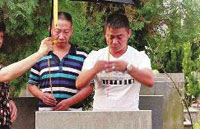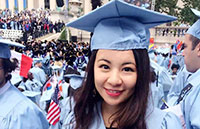Thousands of students take part in innovation contest
By Yan Dongjie (chinadaily.com.cn) Updated: 2016-07-29 21:02
 |
|
The 2016 National Youth Scientific Innovation and Experiment Contest opened on Friday. [Photo by Yan Dongjie/chinadaily.com.cn] |
Brainwave wheelchairs, automatic gesture language translation gloves, and even solar power smart houses are all works invented by teenagers at an innovation contest in China.
More than 15,000 teams and 140,000 students took part in the National Youth Scientific Innovation and Experiment Contest since 2013, which was initiated by the China Association for Science and Technology and the Central Committee of the Communist Youth League of China and supported by Samsung.
The fourth consecutive year of the contest themed "Solve for Tomorrow" started on Friday.
"What's more important is that the experience of taking part in such competitions will greatly improve their confidence and awake their consciousness of self-learning, which will have a huge impact on their whole study career and even their future direction," said Wang Youyan, vice-president of Samsung China, adding that the contest aims at spreading scientific innovation education and cultivating young energetic talents.
LyvXiaobo, a college student in Henan majoring in English for Tourism, discovered his passion towards scientific innovation after last year's contest, in which he ranked fourth for his wind power utilization innovations. Now he is an assistant at Jiaozuo Science and Technology Museum.
"I used to wear no glasses, but now they are 8.5 diopter. It is all a result from my staying up to do experiments over and over again .But I do not regret, because scientific innovation excites me," said Lyv.
Once, in order to gain some statistics of his robot, Lyv stayed in his laboratory for a whole month without going out. He admitted it was tiresome but worthwhile. Eventually he succeeded in making his own robot that could wave hands, walk and even dance.
"I have found out what I truly love through the contest and I will always challenge myself and persist for the rest of my life," said Lyv.
Du Yungang, professor of Inner Mongolia University of Technology, organized 20 teams to sign up for the contest and won the national champion in the "Security Protection" category. After that, he set up a public elective course named Scientific Innovation Experimental Course back in school.
"I just want to make scientific innovation not so distant and unfamiliar to our students," said Du.
This year's contest will for the first time invite an advisory group composed of both technological expert and scientific expert, ensuring a professional guide to the students.
Wang Keju and Zheng Jinqiang contributed to the story.
- Drunk driving blamed for Taiwan bus accident
- Xi: Disaster relief must be improved
- China's push to improve output of research leads way
- Offer of extra time off work sparks a travel rush
- Heat wave poses serious health threat
- Unmanned metro to launch in 2017
- Party's promotional video goes viral online
- President tells the Army to improve
- US agrees it's time to 'turn the page'
- Guidelines encourage parents to provide better care









